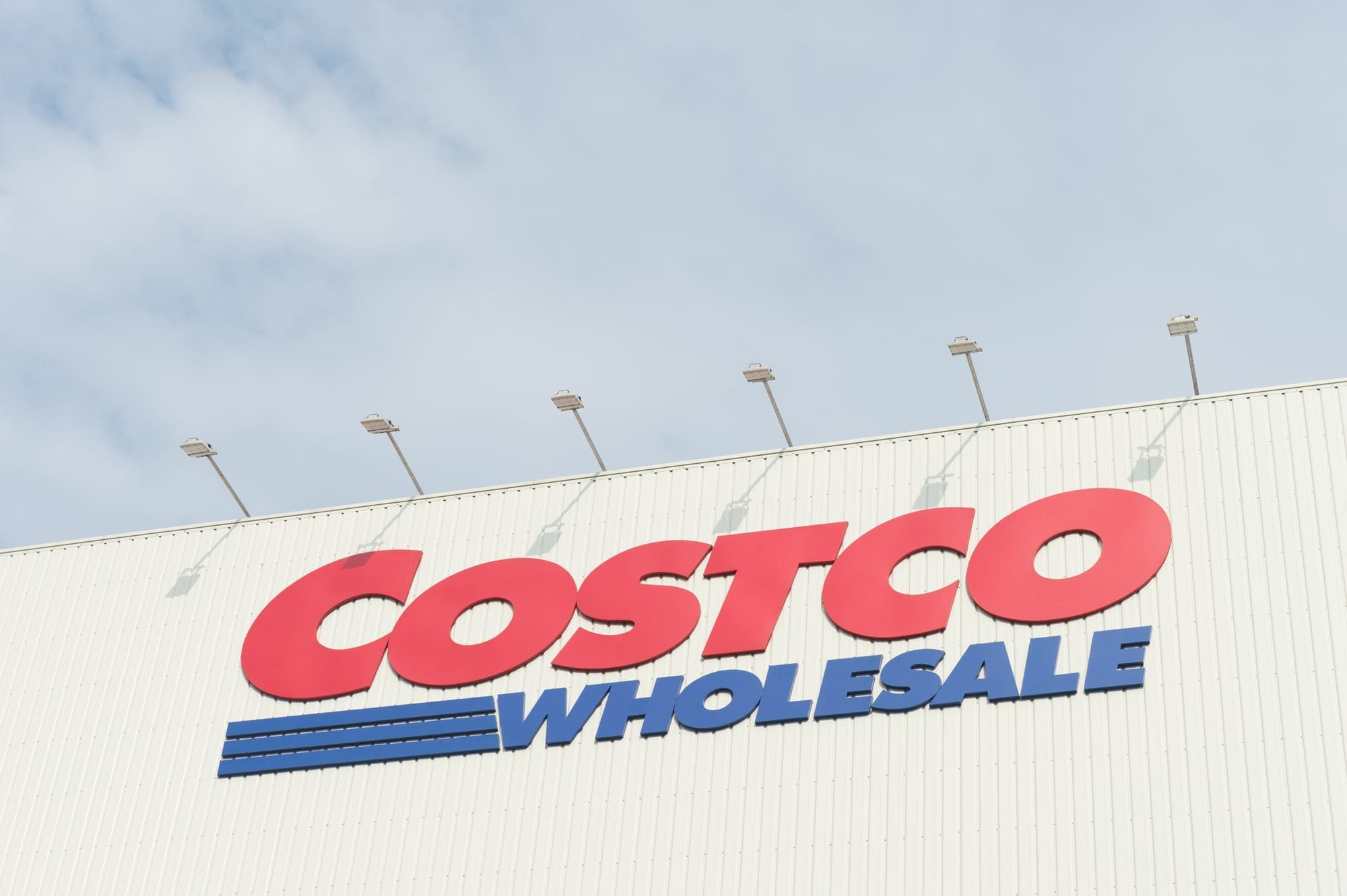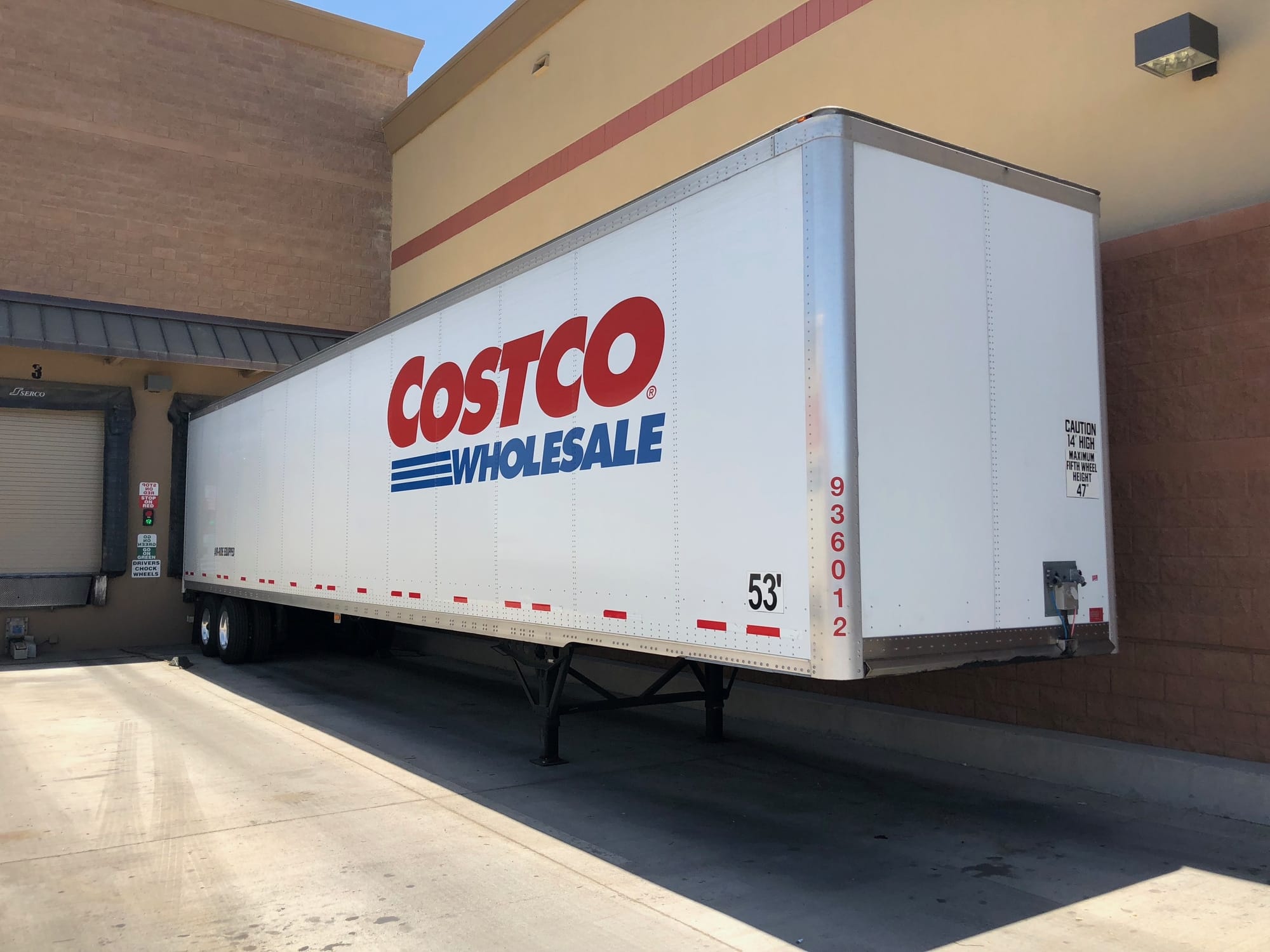We can readily assume that when you think of wholesale retailers, Costco is easily one of the brand names to suddenly pop up in your head! You’re not wrong for thinking of Costco in the category at all because it is the fifth-largest retailer in the entire world! Another cool fact about them is that up till 2016, Costco was the world’s largest retailer of wines, prime beef, rotisserie chicken, and other organic foods!
This American Corporation is also ranked in the 10th position of Fortune 500 companies in terms of revenue in 2021! Headquartered in Issaquah, Washington the company started because of a merger. The Price Club warehouse was the pioneering business to introduce the concept of membership in retail. James Sinegal and Jeffrey H. Brotman who are the owners of Costco started their first warehouse in 1983. They came in contact with the Price family and together they decided to merge their businesses. So now they both became “PriceCostco” and offered universal memberships.
Now Hamilton E. James serves as the chairman and W. Craig Jelinek as the President and CEO. Costco stores are present in 804 locations as of 2021 spread across the United States, Canada, United Kingdom, Australia, Mexico, Japan, China, Taiwan, Spain, France, South Korea and Iceland. There are approximately 254,000 people working for Costco and in 2020 it had 105.5 million memberships. Let’s see how a brand of this magnitude manages to stay relevant through our Costco PESTLE Analysis.
Political factors affecting Costco
Typically businesses keep their selves separate from mainstream politics especially global businesses because they are trying to make a place amongst many different political beliefs and conditions. Costco is no exception to this principle as they maintain a constant stance of being completely separate from any and all political views and beliefs. They have never been a part of any political campaign in any shape or form including funding.
Costco came under a bit of speculation in 2019 for allegedly profiting off of Uighur Muslims in detention camps in Xinjiang China. The clothes that were sold are Costco also came from forced labor at these camps however the brand did not agree to these claims and they say that they have a very ethical supply chain with no association to any forced labor.
Recently in 2020, they got rid of all products from the company “My Pillow” though very slowly over time because of their contracts with the brand. The CEO of My Pillow was under a lot of scrutiny for supporting Donald Trump even after the events at the Capitol. He went as far as claiming that the election was completely rigged, so many retailers stopped associating with the brand altogether.
Over the course of the pandemic, brands as big and as resourceful as Costco have also had to face challenges in terms of freight and shipment. Different port delays all across the globe where Costco serves have been tough to deal with because of the different policies everywhere for dealing with Covid-19. Amongst scarce items were cheese, seafood, olive oil, furniture, sports equipment, and gardening supplies.

Economic factors affecting Costco
While the pandemic has been a period of loss for almost every other business, surprisingly for Costco it has been a period of amazing growth in sales revenue! Since the onset of Covid-19, people have changed their buying patterns to store food, appliances and other homely goods as a priority and all of these items are a Costco specialty. Costco has also benefited a lot from its eCommerce sales because many people have shifted more towards online shopping to keep safe in light of the SOP’s.
In fact, the warehouse club industry as a whole has seen an increase of 15% of sales from 2019-2020 when the pandemic hit us. As per the first quarter of their recent fiscal year on February 28th, 2021, Costco has reported an increase of 14% of their sales in the US, 14.3% of total sales worldwide, and a whopping 80.3% of the increase in sales via E-commerce! Their online sales for groceries also increased by about 300%. These results have surpassed what experts and analysts had expected out of the brand.
The online sales at Costco mainly consisted of food and sundries, housewares, pharmacy, beauty aids, small electrics and TVs, and other electronics.
Despite the amazing success at such uncertain times, they did suffer a bit because their stock price came down by 12% ever since Covid-19. This is mainly because of the slow growth during this time period. They also had a pre-tax loss of 212 million dollars because they paid higher wages to their employees amidst the pandemic. However, this isn’t a dire situation because a brand as diverse and adaptable as Costco is expected to bounce back quite easily.
Costco offers only Visa credit card transactions at their stores; this is a strategy to save their costs by being able to negotiate better credit terms for them. This also helps them in keeping their prices very reasonable for their members.
Costco being an international player has faced certain regulations such as the trade war with China in 2019 when they opened their first warehouse in Shanghai. Owing to the tensions which never completely go away between the US and China, their business in Shanghai remains volatile, to say the least.
Socio-cultural factors affecting Costco
This brand has managed to carve out such a remarkable identity for itself that there is a proper term coined for it; the Costco craze in a CNBC documentary. What is meant by this title is that people follow this retail giant almost like a cult.
Costco has been very smart with their expansion strategies; they began to focus on international markets only when they were leading the market in the US. This is why unlike their competition; they are yet to see failure in a foreign market.
Costco is a global business, which requires it to be very aware of different cultures and traditions in different countries. The most remarkable example of global expansion and adaptation that comes to mind is when they launched their store in Shanghai. China is not accustomed to mass buying as are the people in the US and yet the store in Shanghai was a huge success. This may be partly because of the timing; when they launched in China there were other Western retail brands operating in the country as well. The discount policies at Costco didn’t hurt either.
Another reason why Costco has managed to get so ingrained everywhere they operate is by having amazing people-centric policies. They offer much better wages than other retailers, they offer health and other benefits to their employees, they offer luxury items as a part of their discounted products and they have amazing customer engagement strategies.
A potential risk that Costco should be wary of is ever-changing consumer preferences and buying patterns. Trends around the globe change direction like the wind which might be bad for the brand because they depend heavily on sales volume.

Technological factors affecting Costco
As you already have read above, Costco enjoyed a year of E-commerce growth unlike any other. This is because of their superb handle on technology related to the service of online shopping and delivery. They also have a very impressive record of never being fully out of any inventory for very long. They also work with other third-party businesses to handle their supplying all across the world which helps in maintaining efficiency.
A very interesting project they have going on at the moment is their digital kiosk for Apple products at certain locations; this is an experiment to see how well it does before expanding elsewhere. Known as the “take a ticket” kiosk system, what happens is that customers get to browse on a digital screen to select the specific Apple product they want to purchase upon which a small receipt is printed with the order details on it. A digital version of this receipt is also available for those who don’t wish to print one; all they have to do is to scan a QR code on the screen.
In certain stores present in Mexico, they have now introduced pick-up services for groceries. This service was also started as a tester in three warehouse stores located in Albuquerque. This service allows users to order whatever they want in their groceries to be delivered on the same day. This is against their traditional model where they rely on customers physically being present at the stores but keeping in mind the current scenario of Covid-19, this might just be the technological step that Costco needed to take.
Legal factors affecting Costco
Back in 2020, they got sued in California because of not paying their employees for overtime. Technically, if employees are asked to stay back a while even if they don’t have any work per se when the store closes, it is considered to be off-the-clock work. Costco did this without paying for the resulting overtime hence the lawsuit.
In 2020, Costco got into a legal battle with Tiffany & Co. because of selling diamond rings at their warehouse stores by the name of “Tiffany”. The latter filed a case of infringement and trademark theft on the former however the courts let Costco off the hook based on their explanation of using the name “Tiffany” merely for describing the type and style of the ring being sold; a diamond caught between 6 prongs.
They also had a small quarrel back in 2019 with a man living in Phoenix over allegedly breaching his privacy; a pharmacist who worked in the Phoenix Costco store apparently made a nasty joke about his reproductive health to his ex-wife. He wanted to sue them but eventually could not.

Environmental factors affecting Costco
Costco has climate action and a necessary plan for it as a very important of their overall ECG (environment, social, and governance) strategy and it will be mapped out in excruciating detail in the upcoming 4 fiscal years (2021-2024). They also are very hopeful of reducing their overall CO2 emissions to the lowest possible amount. They have claimed to have reduced their impact on the environment by reducing their carbon footprint relative to their expansion across the globe in terms of sales ever since 2016.
Costco ranks 59 out of a possible hundred in its score on CSR/ESG ranking. This is a ranking system that ranks 19,001 companies from 148 countries, driven by 734 industry-leading CSR/ESG data sources including ESG analyst, crowd, government, publication, & and not-for-profit data. This isn’t an amazing score for a brand as influential as Costco, but it isn’t terrible either, it should be noted that Costco’s business model isn’t necessarily environmentally taxing as compared to others but they still hold a level of responsibility to uphold.
Costco PESTLE Analysis: Conclusion
Costco is easily one of the most successful businesses around as our previous SWOT analysis showed and we don’t think they are going anywhere any time soon. Based on this thorough analysis, it is quite commendable to see that Costco is not a problematic brand even though one might expect to find numerous issues under such a wide span the business has.
The biggest area for improvement for them is their CSR and environmental protection strategy but even there they have plans mapped out. Overall, Costco is an amazing business with even more chances and opportunities for growth in the future.
If you want to look at a business or a company from a macroeconomic perspective which would require you to study it in considerable detail, you need to know what a PEST Analysis is. This is a tool that analyzes and studies a business in terms of its market standing and all the factors that heavily influence its current and future performance.
It is simply an acronym for political, economic, socio-cultural, technological, legal, and environmental; quite self-explanatory as to what sort of factors are considered in the analysis. Should you desire to learn how you can conjure up a PESTLE Analysis of your own, you can find all the help you need on our website. In fact, we also have a great PESTLE Analysis template for those of you who want to start practicing right away.










